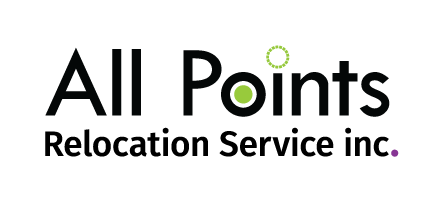So, start preparing as soon as you have decided to relocate someone. Here are some things to prepare that may not come to mind immediately.
Employee task: Check your passport and visa requirements
Work quickly with your immigration consultant to get them the information they need to make a successful application. Immigration processes can take a long time, so getting everything ready quickly is a must. Make sure to check all the details about visa requirements.
One of the most important rules of planning international relocation is your passport. You should make sure that your passport is valid at least six months after your travel date to your destination.
Company task: Ensure High-Quality Communication
Without communication, there is no well-functioning assignment. Start assignments off well with Assignment Project Meetings.
Once the critical information regarding the assignee’s assignment, residency, taxation and other requirements has been exchanged, it is time for this meeting.
The assignee, a host manager (or a team) and a home team should be involved. These people should identify the challenges for the assignment (both personal and work-related) and agree on mitigating these.
The two teams need to go over their expectations for the assignment. This way, both host and home have a say in outcomes, and everything is transparent for all parties, including the assignee.
You should consider elements such as:
- Timelines (Immigration pending)
- Data collection.
- Reporting strategies.
- Assignment work-related goals and measurements
Home teams can often be quiet in this process, but they shouldn’t. If the organization wishes to leverage what’s being learned overseas upon repatriation, the home team should be involved early in the process and throughout. Communication needs to be ongoing. Monthly meetings and weekly check-ins should be set.
Employee task: Decide what you will do with your belongings
Before you start packing anything, you need to know what you will do with your belongings. Look at your policy carefully and work with the mover to understand what is allowable and what size shipment you are offered.
You can ship all goods with you, sell them, or store them. The choice is yours. International relocation can be a great reason to declutter. Make a list of must-haves and those that are “like-to-haves.”
Having clutter on an assignment will result in a cluttered mind, but when it comes to your success and your family’s success, ensure that the list of must-haves is well-considered, especially for your spouse and kids.
Company task: Work on how this assignment will start and be supported
Whether done in-house or with a Relocation Management Company (RMC), ensuring a good initial start to the relocation is crucial to the assignment’s success. If you do not want to use the services of a relocation company, determine how you are going to ensure your relocation allowance is of a sufficient amount or how the employee will be supported with a good quality move experience.
How will you ensure that there is on-the-ground support at the destination? Will it be local HR or a Destination Service Provider (DSP)?
This kind of support covers:
- Temporary accommodation
- Area Orientation
- Finding accommodation
- Creating bank accounts
- Registering locally
- Providing health insurance
- Enrolling children in school (if applicable)
- Driver’s registration (or consultation on another method of transportation)
Employee task: Make copies of important documents
This step is simple yet often forgotten. You need to make a copy of your driver’s license, passport, birth certificate, marriage certificate, school transcripts.
These things might come in handy at any time, and it is better to be safe than sorry. Make copies and keep them safe. Pack them safely, remove them, and find their new home quickly upon arrival. You should also ensure your essential prescription medications are in your carry-on bag versus your checked luggage or moving boxes.
You should never pack these items and put them in the moving truck and onto the ship. You want to keep them with you if you need them and ensure they do not accidentally get misplaced during the move. It is an important step on planning for international relocation.
Visit your doctor well before travelling to find out if you need extra medicine to bridge you during relocation. Because you are going overseas, you will not transfer your prescriptions. So, the more documentation from your doctor, the better.
Why do you have those prescriptions? What is the medical history that made them necessary? You can have these records translated. These documents will make your new location’s doctor’s life a lot easier in writing up these prescriptions again for you.
Company task: Provide Home and Host Sponsorship
We’ve briefly discussed that having a home and host teams managing the expatriate is important, but now we need to talk about sponsors.
Assignees can feel cut off from home office processes and events. To ensure that this doesn’t happen, create “sponsors” that oversee the experience and work of the employee.
Whether they are just contacts or mentors, these individuals (or broader teams) help anchor an expatriate to work in the home country. Both sides help to co-manage and resolve problems when they arise.
Pick these sponsors wisely. Home Country sponsors are best if they have also previously been on assignment because a lot of this touch base is about empathy. It isn’t always about hitting the next performance target.
Employee Task: Study up on your new country and city
You may or may not get cultural training before going on an assignment. But there is a lot you can do on your own. Read and listen to related blogs, books, and podcasts. Do you pick up on any repeating cultural norms and repeating ways of social interaction or doing business? Are people more likely to be late, early, or just on time? Are gifts between business partners expected?
It may sound crazy, but even watch some movies produced by the culture. There is no question that a movie will exaggerate the culture, but you can pick up on some verbal and non-verbal social cues. You can learn about local manners regarding eye contact or greetings, work culture, etc.
There are also some very handy expatriate blogs if you can find them. Start studying!
These are just a few tips on planning for international relocation. Regardless of your list (and there are many more tips), start early and stick to the work consistently before you or your assignee gets on that plane.

